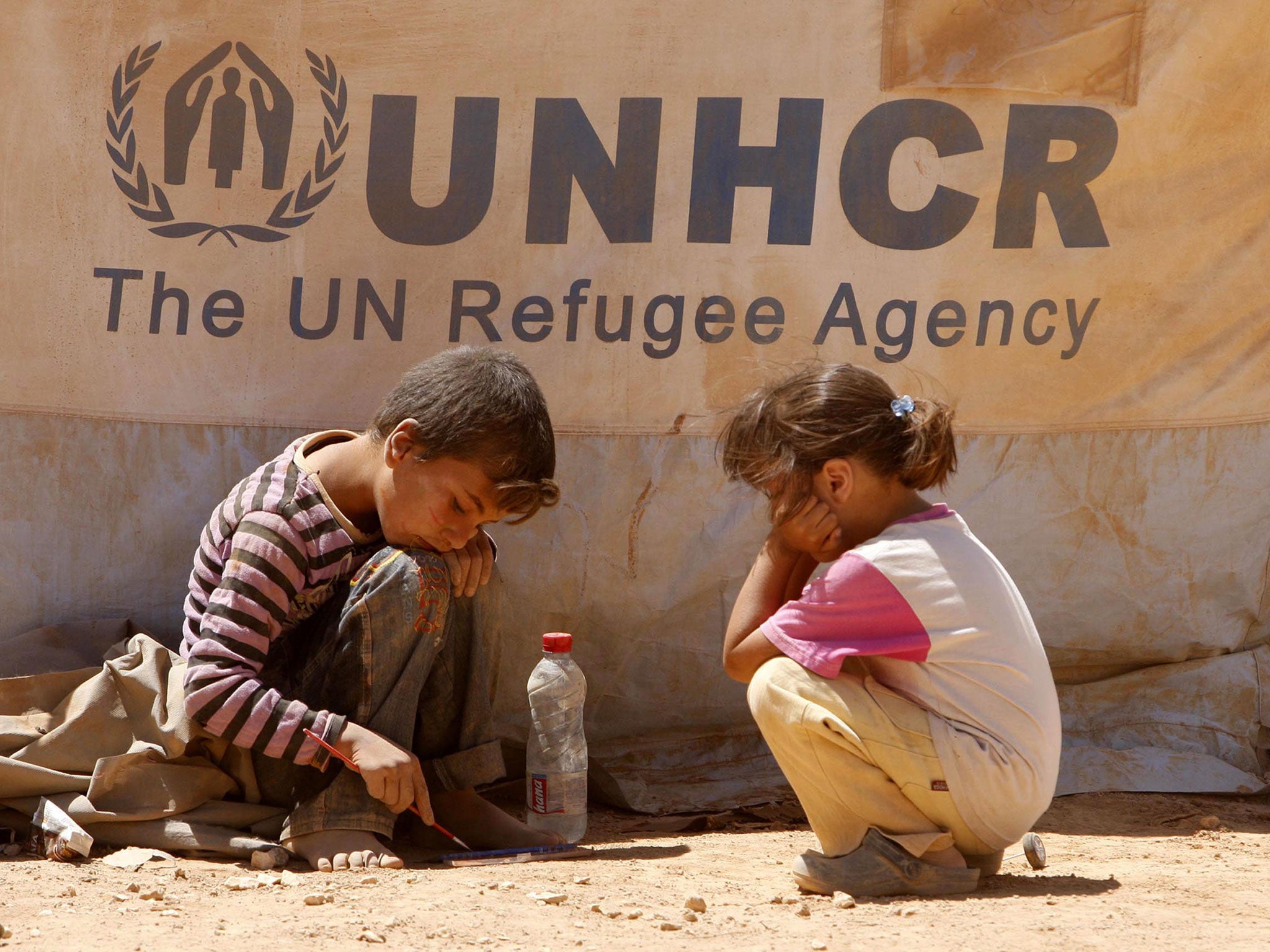Children pay for our failure over Syria
For too long we have sent mixed messages to the dictator in Damascus

Your support helps us to tell the story
This election is still a dead heat, according to most polls. In a fight with such wafer-thin margins, we need reporters on the ground talking to the people Trump and Harris are courting. Your support allows us to keep sending journalists to the story.
The Independent is trusted by 27 million Americans from across the entire political spectrum every month. Unlike many other quality news outlets, we choose not to lock you out of our reporting and analysis with paywalls. But quality journalism must still be paid for.
Help us keep bring these critical stories to light. Your support makes all the difference.
It is a grim milestone: two days ago, the UN announced that the number of Syrian children forced to flee their homeland has reached one million. They make up just over half of the two million people driven from the country, while another 4.25 million are displaced inside its borders. This means that the dictator Bashar al-Assad has forced more than a quarter of the population into internal exile or foreign camps, creating the worst refugee crisis since the Rwandan genocide of 1994. Whatever the outcome of the civil war, the repercussions will be felt for decades.
Also on Friday, the Foreign Secretary William Hague said he believed that last week's chemical attack on a suburb of Damascus was the work of Assad's forces. It is not the first time the regime has been accused of war crimes, and it is clear that the Assad family will stop at nothing to stay in power. They have ruled Syria with the utmost ruthlessness for 43 years, ever since Bashar's father Hafez staged a coup, and the response of the international community has been culpably weak and inconsistent.
When I first went to Damascus in 1994, Bashar had just been recalled from London after the death of his elder brother Bassel in a car crash. Bashar was an ophthalmologist but he soon began his training in the family business of torture and murder. Twelve years earlier, Hafez had committed a massacre in the north-western city of Hama after an uprising by the Muslim Brotherhood. Estimates of the number of casualties vary (20,000 is the commonly-used figure), but it bought the Assad family decades of "peace". Dissent was crushed by filling every corner of the country with government spies, and bundling the dynasty's most determined opponents into vile political prisons. A friend of mine spent 14 years in Assad's jails, where he saw many people die from the effects of torture.
All of this was documented by international human rights organisations. But Tony Blair welcomed Bashar Assad to London in December 2002 and even staged a joint press conference with him. I was so cross when I saw this weak-chinned killer being feted in Downing Street that I complained to a Labour minister, who told me the British government believed Bashar was an improvement on his father.
The chances of that seemed remote, and I'm also aware that cruel regimes tend to end bloodily. I hoped Western intelligence services were quietly making contact with the democratic opposition in Syria, but even that doesn't seem to have happened. A journalist who was seriously wounded in the current conflict told me he received phone calls from both William Hague and the Prime Minister, David Cameron, asking him who the opposition actually were.
What we're seeing now is the dire result of sending mixed messages to dictators. For decades, leaders of democratic countries overlooked massacres and held their noses as the Syrian regime tortured opponents and stockpiled chemical weapons. It was a huge failure of principle and intelligence – and now the price is being paid by one million homeless children.
Join our commenting forum
Join thought-provoking conversations, follow other Independent readers and see their replies
Comments